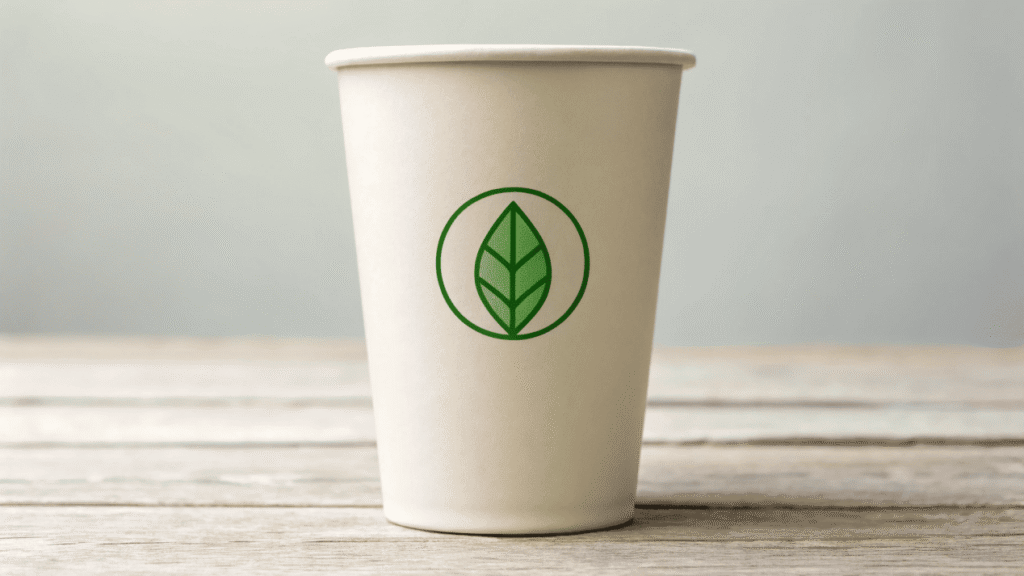You see a cup with the "BPI Compostable" logo and feel good, assuming it's eco-friendly. But you're unsure what to do with it, leaving you confused about its true benefit.
The BPI Compostable logo certifies that a product has been scientifically proven to break down completely in a commercial composting facility within 180 days, leaving no toxic residue. It is not for recycling or backyard composting.
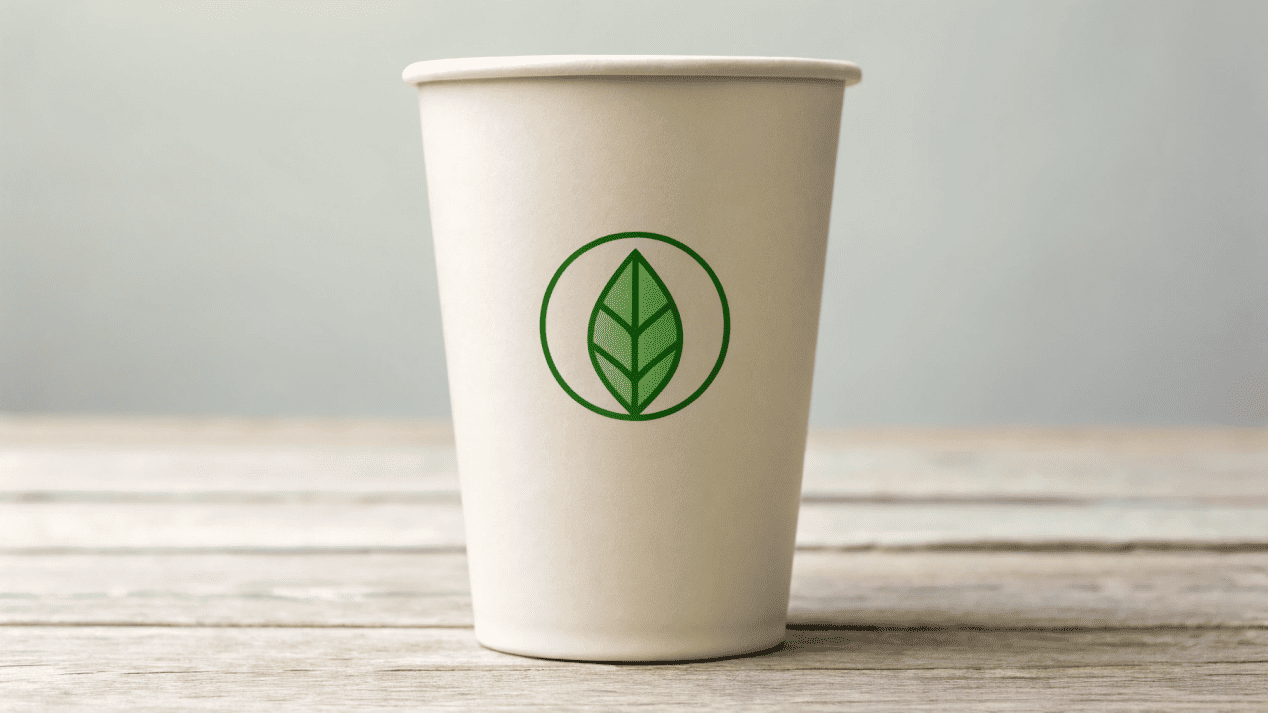
This little logo causes a lot of big questions for my clients. They see it on our PLA-lined cups and want to know what it really guarantees. As a manufacturer, I invested in getting BPI certification because it's about making a verifiable promise. It's a mark of trust that separates a scientifically tested product from a vague marketing claim. But that promise comes with responsibilities, both for me and for the person who uses the cup. Let’s break down exactly what this logo means.
How Does a Product Earn the BPI Logo?
You see the certification mark, but what does it really take to get it? Without knowing the process, it's just another symbol competing for your attention.
A product must be sent to an independent lab and pass the rigorous ASTM D6400 standard. It's tested to prove it disintegrates, biodegrades into natural elements, and leaves non-toxic compost behind.
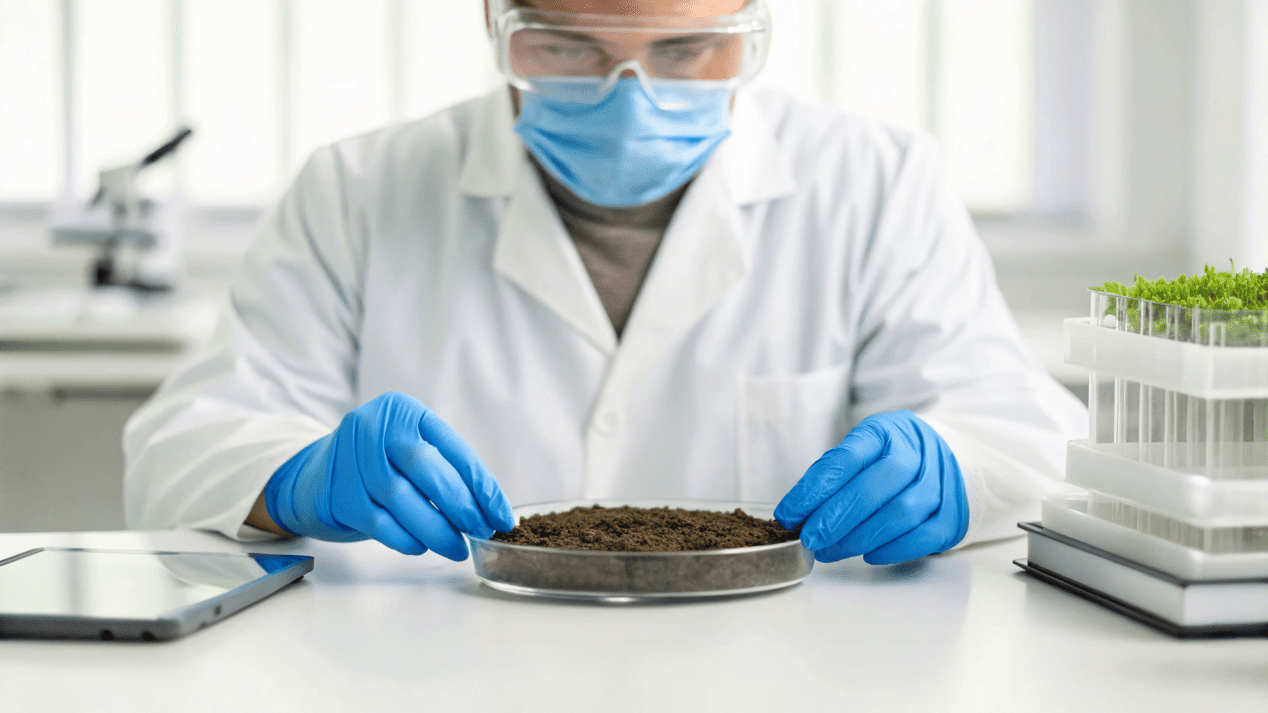
When we decided to certify our compostable products, it wasn't just filling out paperwork. It involved sending our new PLA-lined cups to an accredited laboratory for a series of demanding tests. The "BPI" stands for the Biodegradable Products Institute, a third-party organization that validates these tests. Here's what our cups had to prove:
- They Disintegrate: In the lab, at least 90% of the cup has to physically break down into pieces smaller than 2 millimeters within 84 days. This shows it won't just sit there in chunks.
- They Truly Biodegrade: This is the most critical part. Scientists measure the carbon in the material and prove that microbes convert at least 90% of it into harmless CO₂ within 180 days. This confirms it's actually returning to nature.
- They Are Not Toxic: The resulting compost is tested to ensure it has no heavy metals and can support healthy plant growth. This proves the product doesn't poison the soil.
It's also essential to understand this certification is for commercial composting only. These facilities are hot, managed environments (over 55°C / 131°F). The BPI logo does not mean the item will break down in your cool, backyard compost pile.
What Kinds of Products Can Be BPI Certified?
You see the logo on your coffee cup. But what about the lid, the box it came in, or other items? The scope of certification is wider than you might think.
BPI certifies everything from finished consumer goods like cups, cutlery, and bags to the raw materials manufacturers use, including bioplastic resins (like PLA) and compostable coatings for paper.
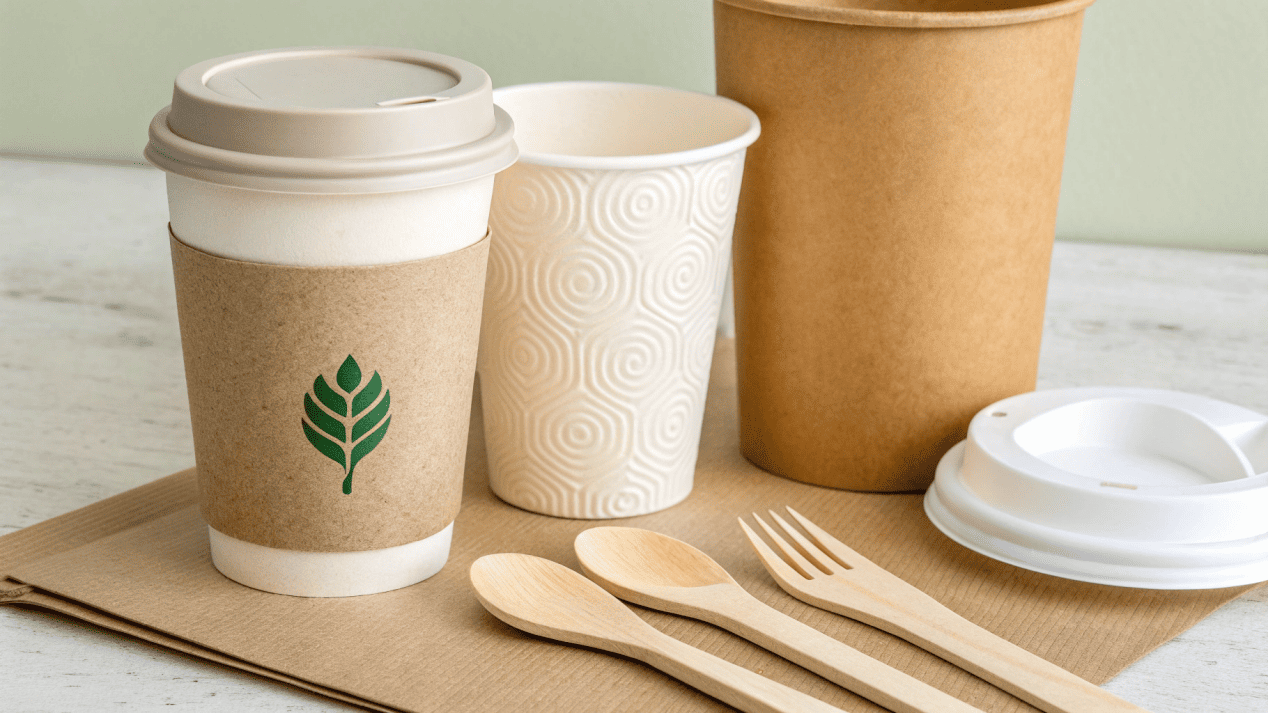
As a manufacturer, I can't just slap a BPI logo on a cup. The entire product has to comply. This is a full supply-chain approach that ensures the final item is genuinely compostable. This includes:
Finished Products for Consumers
This is what you see in a coffee shop or store. The range is growing every day and includes foodservice items like hot and cold cups, clamshell containers, plates, and cutlery. It also covers things like compostable bin liners for food waste and some product packaging films or mailer bags.
Raw Materials for Manufacturers
This part of the certification is critical for my work. I can't just take non-certified materials and hope for the best. I must source components that are already BPI certified.
| Component | Example | Why Certification Matters |
|---|---|---|
| Resins | PLA (Polylactic Acid) pellets | Ensures the base bioplastic is truly compostable. |
| Coatings | Waterproof lining on paper cups | The lining must break down along with the paper. |
| Adhesives | Glue used in compostable boxes | The glue can't contain toxic, non-compostable chemicals. |
By certifying the individual ingredients, BPI ensures that when I assemble a product like a PLA-lined paper cup, the final product upholds the compostable promise.
How Does a BPI-Certified Product Actually Help the Environment?
You feel good choosing a BPI-certified cup. But if it ends up in the wrong bin, does it make any difference? Its true impact hinges on correct disposal.
A BPI-certified product's main benefit is diverting food scraps from landfills, which reduces methane emissions. However, this benefit is lost if no commercial composting facility is available, or if it contaminates recycling streams.
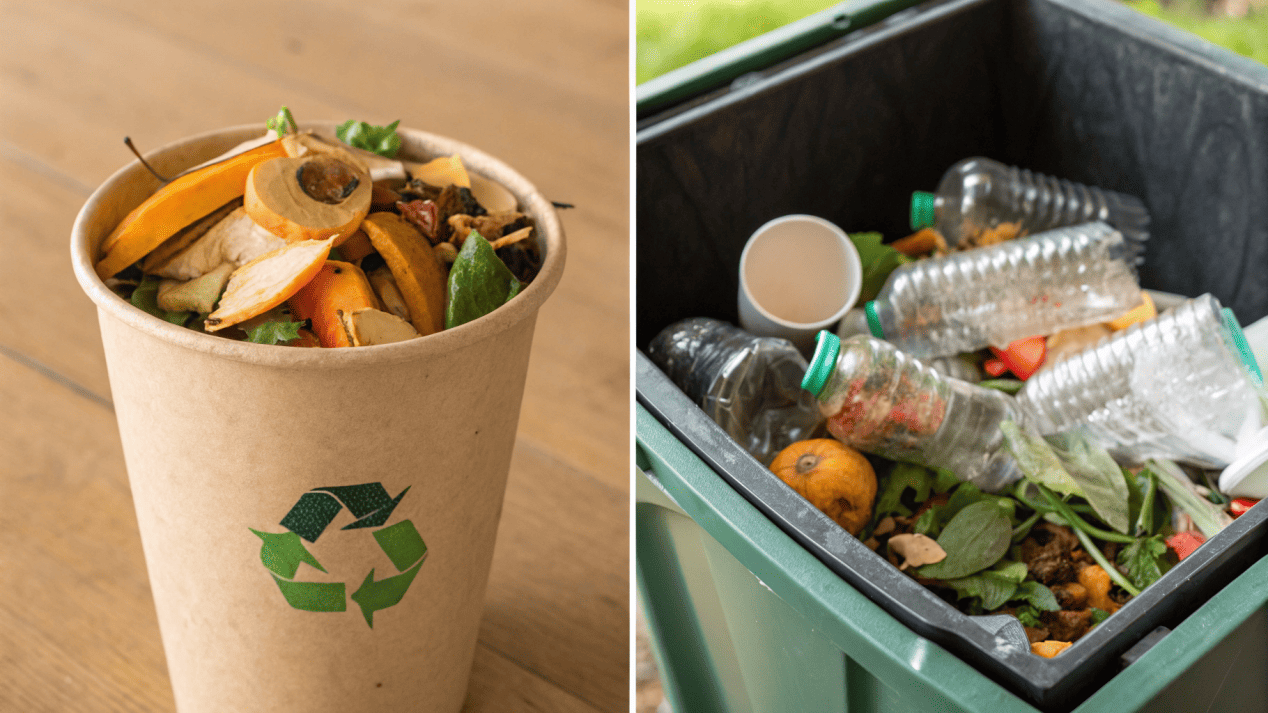
This is where I have to be completely honest with my clients. A BPI-certified cup is a tool, and its effectiveness depends on how it's used at the end of its life.
The Primary Benefit: Diverting Food Waste Its most powerful function is to help carry food waste out of the landfill. When food rots in a landfill without oxygen, it releases methane, a greenhouse gas over 25 times more potent than CO₂. With compostable packaging, you can toss the food scraps and the container into the same commercial compost bin. Both are turned into valuable soil, avoiding methane emissions.
The Critical Challenge: Infrastructure This system only works if your city or community has a commercial composting facility that accepts packaging. If not, that BPI-certified cup ends up in a landfill, where it likely won't break down as intended.
The Biggest Risk: Recycling Contamination This is a huge problem. A compostable PLA cup looks a lot like a recyclable PET plastic cup. If the PLA cup gets into the PET recycling stream, its different melting point can ruin the entire batch of recycled plastic. This is why the BPI logo means "COMPOST ONLY," never recycling.
Why Should You Trust BPI Over Other "Eco" Claims?
You see dozens of vague claims like "biodegradable" or "earth-friendly." This greenwashing makes it hard to know what's real. The BPI logo is designed to cut through that noise.
The BPI logo is a third-party, science-based certification, not a self-made claim. It provides clear disposal instructions and proves a product meets a specific, time-bound standard for compostability.
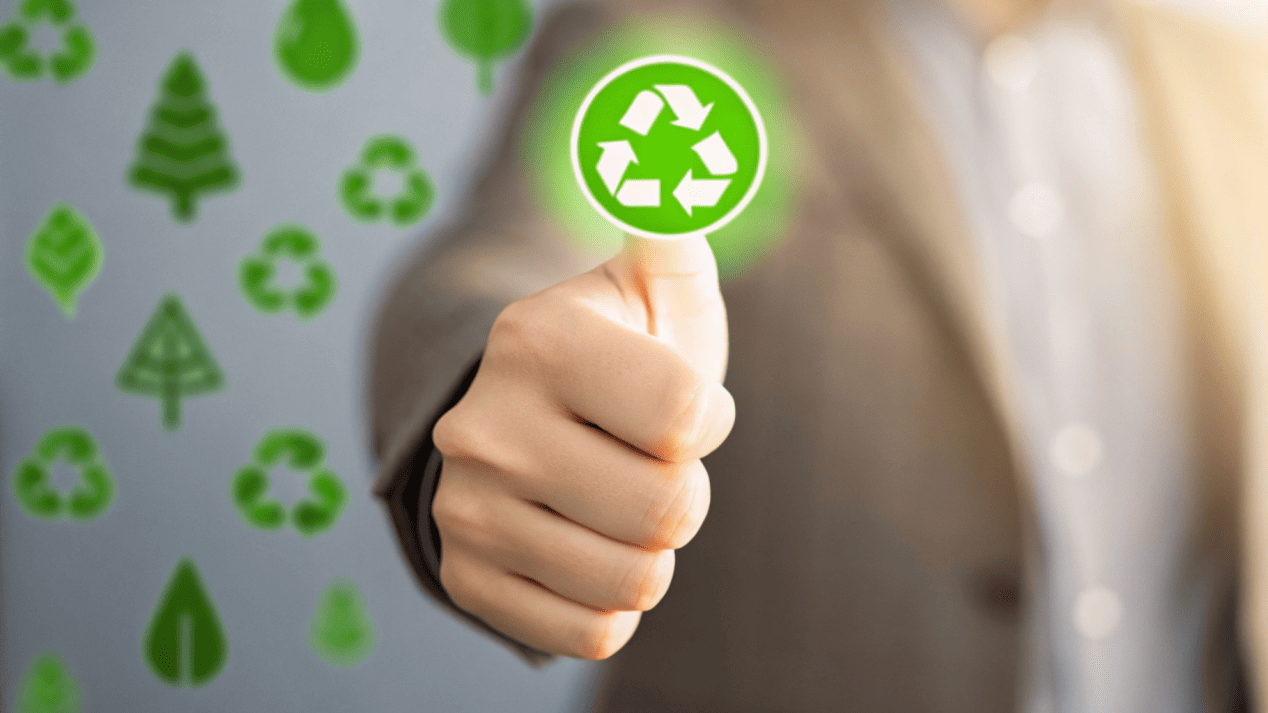
In a world of confusing environmental marketing, the BPI logo offers clarity. Here's why it's a mark you can trust:
-
It's Independent Proof. The logo isn't something I can just decide to put on my products. It signifies that I've submitted my product to an impartial, science-driven organization and passed their strict tests. It's objective verification.
-
It Provides Clear Instructions. The logo immediately tells you and the waste hauler what to do with the item: "Put me in a commercial compost bin." It helps everyone sort waste correctly.
-
It Replaces Vague Terms with a Specific Promise. The word "biodegradable" is almost meaningless—a log is biodegradable, but it takes decades. The "BPI Compostable" certification is tied to that specific 180-day scientific standard. It replaces ambiguity with assurance.
This is why I invested in BPI certification. It’s not just a logo; it's about giving my clients, and their customers, a promise they can actually rely on.
Conclusion
The BPI logo is a trusted, science-backed mark certifying a product for commercial composting, fighting greenwashing but requiring correct disposal to fulfill its environmental promise.
